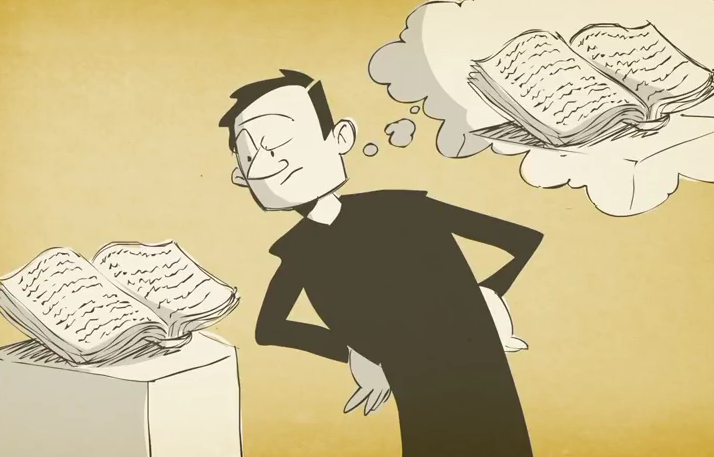Think back to a really vivid memory.
回想一個生動的回憶。
Got it? Okay, now try to remember what you had for lunch three weeks ago.
想起來了嗎?好的,現(xiàn)在想想你三周前午餐吃了什么。
That second memory probably isn't as strong, but why not?
這個回憶可能就不是那么栩栩如生了吧,為什么會這樣呢?
Why do we remember some things, and not others?
為什么我們會記住一些事情,而忘卻另外一些事情?
And why do memories eventually fade?
為什么記憶最終會一點一點褪色?
Let's look at how memories form in the first place.
讓我們先來看一下,記憶是如何產(chǎn)生的。
When you experience something, like dialing a phone number, the experience is converted into a pulse of electrical energy that zips along a network of neurons.
當(dāng)你經(jīng)歷事情的時候,比如撥電話號碼,這個體驗會被轉(zhuǎn)化成一種腦電波脈沖,這種脈沖快速地沿著神經(jīng)網(wǎng)絡(luò)前進。

Information first lands in short term memory, where it's available from anywhere from a few seconds to a couple of minutes.
信息首先到達(dá)短期記憶處理中心,這是一個存儲幾秒鐘到幾分鐘記憶的區(qū)域。
It's then transferred to long-term memory through areas such as the hippocampus, and finally to several storage regions across the brain.
然后,信息通過海馬體等區(qū)域被轉(zhuǎn)成長期記憶,最終保存到大腦幾個記憶儲存區(qū)域。
Neurons throughout the brain communicate at dedicated sites called synapses using specialized neurotransmitters.
大腦里的神經(jīng)元在專門地點交流,這些地點利用的是特殊神經(jīng)傳遞的突觸。
If two neurons communicate repeatedly, a remarkable thing happens: the efficiency of communication between them increases.
如果兩個神經(jīng)元重復(fù)連接,就會發(fā)生一件重要的事:兩者間的交流變得更加有效率。
This process, called long term potentiation, is considered to be a mechanism by which memories are stored long-term, but how do some memories get lost?
這個過程被稱為長程增強效應(yīng),它被認(rèn)為是記憶被長期儲存的機制,但是,有些記憶怎么會丟失呢?
Age is one factor.
年齡是個影響因素。
As we get older, synapses begin to falter and weaken, affecting how easily we can retrieve memories.
隨著我們年齡增大,神經(jīng)元突觸開始衰退和變?nèi)酰绊懥宋覀冏x取記憶的難易程度。
Scientists have several theories about what's behind this deterioration, from actual brain shrinkage, the hippocampus loses 5% of its neurons every decade for a total loss of 20% by the time you're 80 years old to the drop in the production of neurotransmitters, like acetylcholine, which is vital to learning and memory.
科學(xué)家們有幾個原理解釋了這種退化背后的原因。從真正的大腦萎縮開始,海馬體每十年失去5%的神經(jīng)元,當(dāng)你80歲的時候,你一共失去20%的神經(jīng)元,這導(dǎo)致神經(jīng)傳遞產(chǎn)物的下降,比如對學(xué)習(xí)和記憶至關(guān)重要的乙酰膽堿。
These changes seem to affect how people retrieve stored information.
這些改變可能影響人們讀取那些存儲的信息。
Age also affects our memory-making abilities.
年齡也影響了我們產(chǎn)生記憶的能力。
Memories are encoded most strongly when we're paying attention, when we're deeply engaged, and when information is meaningful to us.
當(dāng)我們集中精力、完全投入的時候,當(dāng)信息對我們來說非常重要的時候,深刻記憶就會生成。
Mental and physical health problems, which tend to increase as we age, interfere with our ability to pay attention, and thus act as memory thieves.
當(dāng)年紀(jì)變大,精神和身體的健康問題就變得越來越多,干擾我們注意力的集中度,也因此成為我們記憶的小偷。


